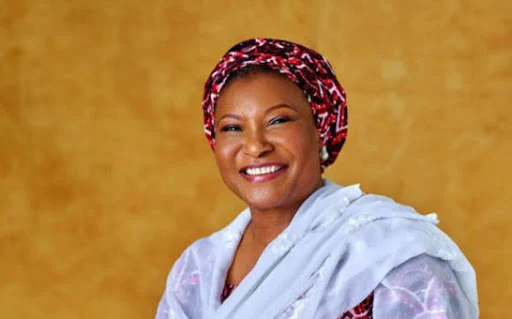July 12, 2025
In a significant political development, Senator Ireti Kingibe, who represents the Federal Capital Territory (FCT) in the Nigerian Senate, has formally announced her intention to leave the Labour Party (LP) and join the African Democratic Congress (ADC). Her decision, which was confirmed in a widely circulated video, marks a pivotal moment for both the ADC and the broader coalition of opposition leaders coalescing around it.
“I’m totally and completely committed to ADC... I want to do so with noise and fanfare,” Senator Kingibe stated, underscoring her full alignment with the emerging political movement.
Why It Matters: The Rise of a New Opposition Bloc
Senator Kingibe’s defection comes amid a larger wave of realignments in Nigeria’s opposition landscape. Key national figures—Atiku Abubakar, Peter Obi, Nasir El-Rufai, Rotimi Amaechi, Abubakar Malami (SAN), and others—are backing a new coalition using the ADC as its vehicle for the 2027 general elections. This coalition aims to break the dominance of the All Progressives Congress (APC) and present a unified front against President Bola Tinubu’s administration.
Kingibe's move into ADC not only adds legislative weight to the party but also reinforces the credibility of this new opposition alliance.
Reasons for Defection: Division in Labour Party
Citing deep internal divisions within the Labour Party as the primary reason for her departure, Kingibe argued that the LP is now fractured into two factions, a situation that legally justifies her exit under the constitutional provisions governing party defection.
> “The Labour Party has since been split into two factions,” she explained. “So constitutionally, I’m allowed to move.”
This statement reflects a wider sentiment among LP members who have grown increasingly disillusioned with the party’s internal crises since the 2023 elections.
A Calculated Political Move
Her defection is clearly strategic. The ADC, once seen as a minor political party, has now been elevated to center stage by the backing of heavyweight politicians who are forging a grand opposition coalition. For Kingibe, joining this coalition not only aligns her with key powerbrokers ahead of the 2027 elections but also positions her to retain influence and relevance in Nigeria’s shifting political terrain.
Despite concerns that her seat might be at risk following her defection, her argument that the LP is no longer a unified party could be a strong defense if any legal challenge arises.
What It Signals for the ADC and 2027 Elections
Senator Kingibe’s decision sends a strong signal that the ADC-led coalition is gaining traction and legitimacy. Her inclusion enhances the party’s representation in the National Assembly and shows that its platform is attracting serious political actors, not just political rhetoric.
With prominent figures from across party lines—including ex-VP Atiku Abubakar (PDP), ex-Governors Peter Obi (LP), El-Rufai (ex-APC), and Amaechi (ex-APC)—the ADC now embodies a cross-party coalition determined to challenge the status quo.
This development could potentially reshape Nigeria’s two-party dominance, creating a third force with real electoral power and national reach.
---
Conclusion: A New Chapter in Nigeria’s Political History
Senator Ireti Kingibe’s move to the ADC is more than a personal political decision—it reflects the beginning of a broader realignment in Nigerian politics. With the Labour Party weakened by internal rifts and the APC facing growing opposition, the ADC-led coalition may offer a viable alternative to millions of Nigerians seeking competent, united leadership.
As the 2027 general elections approach, the ADC's growing coalition, now bolstered by active legislators like Kingibe, represents a dynamic force that could redefine Nigeria’s political future.
Tags
News

